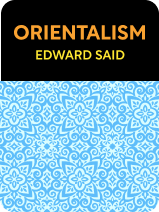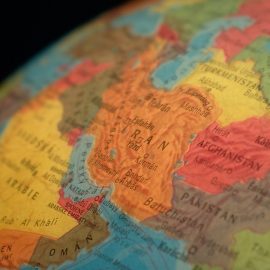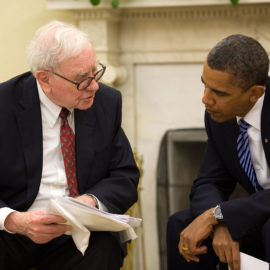

This article is an excerpt from the Shortform book guide to "Orientalism" by Edward Said. Shortform has the world's best summaries and analyses of books you should be reading.
Like this article? Sign up for a free trial here .
Are you looking for Edward Said’s Orientalism quotes? Which quotes and passages highlight his most influential ideas about Orientalist scholarship and discourse?
In Orientalism, Edward Said deconstructs how Western views of Asia and the Middle East have been filtered through the artificial construct known as Orientalism. The following are Edward Said’s Orientalism quotes, highlighting some of the author’s key messages about Orientalist scholarship, its limitations, and real-world consequences.
Keep reading for Edward Said’s Orientalism quotes.
Edward Said: Orientalism Quotes
“ The result is usually to polarize … the Oriental becomes more Oriental, the Westerner more Western. ”
Said is addressing what he believes to be the most pertinent question raised by Orientalism, specifically whether it is possible for different cultures to be genuinely divided into distinct categories. He suggests that the use of categories further reinforces their distinctions even if the distinctions are arbitrary.
“ It seems a … human failing to prefer the … authority of a text to … direct encounters. ”
In this quote, Said is referring to what he calls “problem with textualism“, that is, the tendency of Orientalists throughout time to draw from the ancient texts that reinforce the Oriental stereotypes, rather than from the direct contact with the natives of the East.
“In a sense the limitations of Orientalism are, as I said earlier, the limitations that follow upon disregarding, essentializing, denuding the humanity of another culture, people, or geographical region.”
Orientalism does not reflect objective truth. Instead, it is an invention of the Western mind, artificially reducing the complexity of diverse human societies, languages, cultures, and histories into near-meaningless generalities that ultimately serve to obscure the humanity of the people to whom they refer.
“Indeed it can be argued that the major component in European culture is precisely what made that culture hegemonic both in and outside Europe: the idea of European identity as a superior one in comparison with all the non-European peoples and cultures. There is in addition the hegemony of European ideas about the Orient, themselves reiterating European superiority over Oriental backwardness, usually overriding the possibility that a more independent, or more skeptical, thinker might have had different views on the matter.”
According to Said, Orientalism played a significant part in constructing the narrative of the European identity. This identity was typically expressed as one of superiority and dominance over the Orient, which Western writers, travelers, and, later, imperialists reduced to a series of crude and reductive stereotypes and generalizations. The West was Christian where the Orient was Islamic; its people were Nordic were those of the Orient were Semitic; it was liberal, democratic, and rational where the Orient was backward, despotic, and emotional.
This was a major reason why European Orientalists were so steadfastly opposed to modern political developments like Arab nationalism. The success of the national independence movements threatened to knock down this division upon which Europe built its entire identity of superiority.

———End of Preview———
Like what you just read? Read the rest of the world's best book summary and analysis of Edward Said's "Orientalism" at Shortform .
Here's what you'll find in our full Orientalism summary :
- How Western society invented the concept of Orientalism
- Why "the Orient" was thought of as a different, exotic, and dangerous place
- How Orientalism was central to European colonialism






